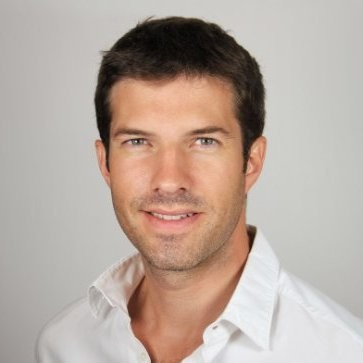Pierre Betouin, Co-Founder and CEO at Sqreen and Nuno Antunes, the company’s new VP Engineering, recently placed by Erevena, talk to Erevena about the challenges of remotely onboarding senior people.
Sqreen is a next generation leader in application security management. Rather than protect an application’s perimeter, Sqreen provides deep application monitoring for developers to identify and neutralize even the most sophisticated cyberattacks.
In March this year, Nuno was hired as VP Engineering, to scale Sqreen’s team in Paris and to lead the engineering group, scale it, with the perspective to open a second engineering office in Lisbon where he is currently based. Then the Covid-19 lockdown began.
What were you expecting on-boarding to be like?
Nuno: I thought I’d be living in Paris for the past month and working in the office. I get a lot of energy from being around teams. It’s fun. Impromptu meetings around coffee breaks, long discussions at lunch. I like to create strong trusted relationships in-person. Instead I am working remotely. I’ve never done this before and it’s a huge challenge. But I think it’s working well.
Has remote working affected how you build an engineering organization?
Nuno: One thing that works better is that we are being forced to be more organised and to prepare better for meetings. It’s the only way to ensure we cover every topic because there is zero chance of bumping into colleagues for a chat around the office. So, there is a requirement to structure conversations and list the topics you want to cover.
Then there is a challenge around empathy when you are working remotely. Reading a person is completely different remotely compared to a face-to-face meeting. There are more distractions and things like facial expressions or body language are harder to pin down in an online meeting.
Pierre: I agree with Nuno on this. You only get about 20-30% of feedback signals that you get in a physical meeting, with too much time trying to read the small things. For Sqreen, given our strong social culture, we are trying to adjust to the new normal that is remote working. I had planned to be in Paris to meet up with Nuno and for him to come to San Francisco where I’m based as part of his onboarding, but we’ve had to manage all of this virtually.
What priorities do you now have for the onboarding process?
Pierre: This new way of working has flagged up three priorities:
- The first is the CEO and senior hire relationship. It is important that we are aligned and for the new VP (in this case Nuno) to see the world as the CEO does. We have been having hour-long virtual meetings about the company’s strengths and weaknesses and what we are all working towards. Taking this time to establish a strong fit has been vital.
- The second priority is to build the relationship between Nuno and his teams. Achieving this remotely is perhaps the biggest challenge in such a social company.
- And finally, the third priority is the peer-to-peer connections between Nuno and his fellow VPs. These will come in time, so it is the first two priorities that I believe are most important.
Nuno: These priorities were something I had to make clear to my team from the beginning. While I probably wanted to do something more organic in terms of getting to know them, that hasn’t been possible. I had to communicate that I needed to work first with Pierre and then with them. Only now am I able to look at the processes by which the engineering team will move forward.
Pierre: It’s also important to make everyone aware of what the new hire’s role is, who is making what decisions and how this might free up others who’ve perhaps been carrying some of the workload. There have been role changes internally and that’s much harder to convey remotely.
How have you created the right waves when it comes to communicating the changes?
Nuno: I’ve been holding regular virtual meetings with different teams by way of a checkpoint on hiring and to capture the vibe of the business. These are an opportunity to share a story, perhaps an issue that’s worrying someone, and to give each team a room to discuss how to deal with it proactively.
Pierre: We’re also adding as many tools as we can to gather the signals from across the teams. As CEO, I’ve suddenly found myself in a situation where we’ve moved from a world with very few problems, to one with ten or more a day. When you’re in an office situation, something like a chat over coffee or in the corridor solves a problem, but now a small issue can suddenly escalate because we don’t have these informal moments.
You need to keep the communication string tight across borders and between shifts so that you can continue to carry out proofs of concept as if you are all together. I personally have one-on-one virtual meetings with the business leaders every week. More than ever before you need to create the right psychological setting to make sure that people talk up and tackle issues correctly. I also encourage people who come to me with problems to have at least part of the solution figured out, so they are in the right positive mindset when thinking things through.
How do you encourage this openness remotely?
Pierre: By saying that it is OK to criticise if something isn’t going to plan we’re creating psychological safety. We share that we don’t always get it right. For example, at the outset of Covid-19, we tried to shift everything to remote ways of working, including our famous socialising! But we soon discovered that after eight hours of work Zoom meetings a day, people simply don’t want to use it for after-work socialising so we had to rethink that.
A lot of what you do is visual – how do you make this work?
Nuno: Holding discussions without whiteboards is probably one of our biggest challenges, so we’ve tried using a number of different tools to help us collaborate virtually. These include iPads and virtual whiteboard tools. It’s not the same as face-to-face interaction because you have to spend more time explaining things.
Is there a fear that remote working might hamper engineering innovation and productivity?
Nuno: People are taking a hit whereby they’re working more hours, but this doesn’t equate to productivity. I don’t see this as a problem of remote working, however – after all lots of people worked remotely before coronavirus. It’s more about being confined by Covid-19, rather than remote working by choice. The confinement means they can’t get out; can’t walk around and get away from their home environment. In terms of innovation, we have had some great discussions on how to collaborate and I believe innovation is possible under the current constraints.
Pierre: We are addressing productivity by diving deep on the Sqreen OS (operating system). This is a collection of agreed processes for making sure marketing, product and engineering are very tightly coupled in the discovery and execution of new services. That forces meetings to be planned better in advance.
Will ways of working fundamentally change when you return to work as normal?
Nuno: Definitely. Things will change as people unused to remote working have suddenly been exposed to it. Remote working will be the new default – for a time, at least. I anticipate that things will change again over time and we will see two types of people in the workplace: those who like remote working and feel productive; and lots of people who want to be in the office where they feel more energised and productive.
Pierre: We will enter a hybrid time where full remote working will not be the norm because many of our people like the energy of working alongside colleagues in the workplace. And people will change their minds. I expect to see some of those employees who always wanted to work remotely thinking differently now they’ve had it forced on them. And yes, there will be others who have loved it and want to continue working remotely. With Facebook saying 50% of its workforce will be remote in the future and Twitter offering its people the opportunity to work from home if they want to forever, we need to ensure that we’re aligned with each market nuances for talent. So, expect to see a flexible mindset and hybrid working approach at Sqreen post lockdown.
Share this article:











